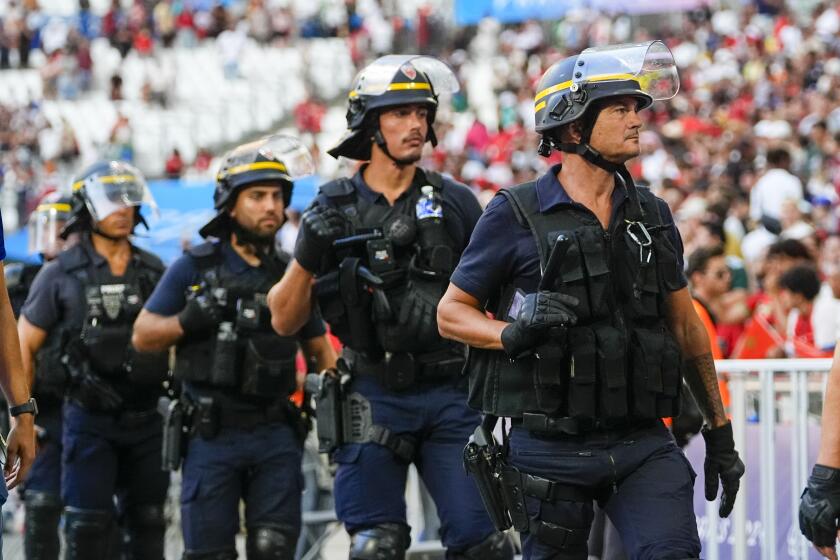Catlin is leaving drug-testing lab at UCLA
Don H. Catlin, who founded UCLA’s Olympic drug-testing laboratory in 1982 and built it into the busiest such facility in the world, said Tuesday he will retire from the university and turn to full-time research in sports doping.
“Basically, I know how to test,” he said in a telephone interview from his Westside office, “but I don’t have enough time anymore for my favorite avocation, which is research. Now I’ll get to pick and choose my pet projects.”
Catlin, 68, said those include developing a urine test for human growth hormone, which is reportedly growing in popularity as a sports doping substance, and improving the existing test for erythropoietin, or EPO, a performance-enhancing hormone that promotes the growth of red blood cells.
He will work through the Anti-Doping Research Institute, a non-profit lab he founded and that is located about a mile from the Olympic lab in West L.A. The institute, which is unaffiliated with UCLA, received a three-year, $500,000 grant from Major League Baseball last year to develop an HGH test, which is currently undetectable in urine.
Catlin says the lab also has a commitment from the U.S. Anti-Doping Agency to provide it with a mass spectrometer, a crucial machine in drug testing, for a nominal lease fee, and is talking with the National Football League and other organizations to raise further funds.
“We’re trying to get a handle on whether sport is really able and willing to support a research institute,” he said.
As a professor at UCLA medical school, Catlin founded the Olympic lab at the request of the International Olympic Committee to provide drug testing at the 1984 Los Angeles Games. It is now part of a network of 34 anti-doping labs accredited by the World Anti-Doping Agency.
Of those, it is by far the busiest: Last year, the lab performed roughly 40,000 tests for anti-doping agencies, the NCAA, minor league baseball, and the NFL -- nearly four times as many as the runner-up lab (in Cologne, Germany). The Olympic lab employs about 40 people.
One of the world’s leading authorities in sports doping, Catlin’s reputation is closely tied to the lab, and it is unclear whether the facility will retain its prominence after his departure. A spokesman for UCLA said the university hopes to keep the lab operating as part of its David Geffen School of Medicine. In a statement issued Tuesday, the Geffen school’s dean, Gerald S. Levey, said he would “immediately begin discussions” with WADA and the other lab clients “with respect to the continuation” of the lab’s association with the school.
Catlin said the transition to a new lab director, yet to be selected, would take about a month, and that he would become an emeritus professor at the Geffen school, where he plans to continue teaching.
As lab director, Catlin notched numerous milestones in the field of sports doping, notably his identification in 2003 of tetrahydrogestrinone (THG) a “designer steroid” illicitly dispensed to athletes by the notorious Bay Area Laboratory Cooperative, or BALCO.
But he has also been critical of the existing anti-doping system, which he believes is underfunded by sports and anti-doping organizations and unduly fixated on proving athletes dirty. Instead, he has proposed giving athletes an incentive to establish their cleanliness by volunteering for long-term medical profiling.
Under WADA rules, Catlin has been barred from offering his expertise as a witness to athletes defending themselves against anti-doping charges. He said Tuesday that he was unsure under what circumstances he would take on such assignments as an independent researcher.
“I’m not going to be out there testifying against my old friends,” he said. “But I’ll be out there trying to get it right for sport, for the agencies, for the athletes. It has to be right for everybody.”
*
More to Read
Go beyond the scoreboard
Get the latest on L.A.'s teams in the daily Sports Report newsletter.
You may occasionally receive promotional content from the Los Angeles Times.





